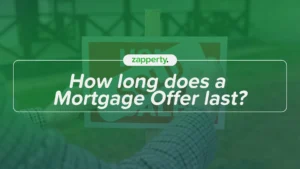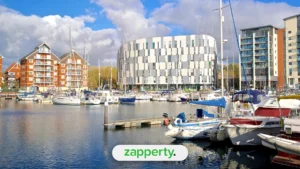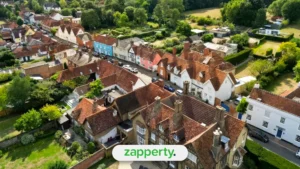Owning a second home is an amazing dream to have. You might want something like a seaside holiday retreat, a buy-to-let investment, a way to make some money with an Airbnb or simply a larger property for your growing family. Whatever the reason, it’s a fantastic ambition. But what if you don’t want to part ways with your current house? You may want to own two properties at the same time, either through necessity, leisure or a potential way to increase income.
Buying a second home without selling the first is absolutely possible, but it comes with its own financial, legal and tax considerations. So, you need to be fully clued up on these before you make the move, to make sure you’re not hit with unexpected costs that make things financially or even legally tricky.
In this article, we’ll cover how:
- Buying a second home without selling the first is possible but requires careful consideration of financial, legal, and tax aspects.
- You need to understand conveyancing, usage restrictions and local regulations when purchasing a second property.
- Assessing your financial situation thoroughly is crucial, including exploring options for sourcing a down payment and understanding the implications of higher stamp duty and potential capital gains tax.
- If you need to purchase a new home without the limitations of a chain, you can sell your home fast with Zapperty.
Key Rules and Considerations When Buying a Second Home
Buying a second property involves the same conveyancing process as your first, but with additional restrictions and obligations to consider.
Conveyancing and Legal Checks
You’ll still need a solicitor or licensed conveyancer to manage the transaction. They’ll confirm ownership, carry out searches and check for covenants or restrictions that might limit what you can or can’t do with the property. For example, some homes may restrict holiday letting, or you may face planning conditions in popular destinations.
Usage Restrictions
Certain areas, such as National Parks and Areas of Outstanding Natural Beauty, may have occupancy restrictions or require special permissions for refurbishments. Local councils in tourist hotspots may also impose limits on holiday lets like Airbnb.
Local Regulations
Planning conditions and zoning rules vary across the UK. If you’re buying in a high-demand holiday area, expect stricter rules to protect local housing availability.
Financial Differences
From a tax perspective, second homes attract higher Stamp Duty Land Tax (SDLT) and lenders often apply stricter affordability checks for mortgages. You’ll need to show your finances can comfortably support two properties.
Assess Your Financial Situation
Before committing to a second purchase, assess whether your finances can realistically support two homes. Start by reviewing your current mortgage obligations alongside your income stability, existing debts and credit score.
Most lenders will conduct a detailed affordability assessment, so you should do your own calculations beforehand. Remember that you’ll need to fund another deposit (often at least 15% to 25%) and plan for ongoing expenses like maintenance, insurance and council tax. See the UK Government guidance for specific information on second homes.
Source Funding for Another Down Payment
If you don’t have cash savings set aside, there are several ways to raise funds for a second home deposit:
- Equity release from your first property: Remortgaging your current home can free up capital for your second purchase.
- Home equity loans or lines of credit: These allow you to borrow against the value of your current property.
- Personal loans: Suitable for smaller deposits, though usually at higher interest rates.
- Bridging loans: A short-term option to cover the gap between buying and selling, though they come with higher costs and stricter terms. You can explore solutions like those offered by Funding Guru, which specialises in property finance.
Benefits of Buying Before Selling
Buying before you sell has some clear advantages:
- Avoid missing out: If your dream property comes on the market, you can make an immediate offer without waiting for your current home to sell.
- No chain pressure: Without relying on a buyer, you can take your time house-hunting.
- Stronger negotiating position: With no chain, sellers may take your offer more seriously.
- Flexibility with timing: You can move on your own schedule, avoiding rushed decisions or paying for temporary accommodation.
Downsides of Buying Before Selling
However, there are risks too:
- Uncertainty on sale price: Until your first home sells, you won’t know exactly how much equity you’ll walk away with.
- Financing challenges: Covering two mortgages can be tough, and bridging loans add costs.
- Higher upfront taxes: You’ll pay SDLT on the new home at the higher second-home rate. While you can reclaim this if you sell your first home within 36 months, the upfront outlay can be pretty big.
What Are the Tax Implications of Buying a House Before Selling?
Tax is one of the most important factors to bear in mind when buying a second home before selling your first. After the deposit, the biggest cost comes from Stamp Duty Land Tax (SDLT), as second homes in the UK carry an additional 5% surcharge on top of the standard rates. This can make the upfront expense a lot higher than if you were buying a property you intended to live in and make your primary residence.
Looking ahead, Capital Gains Tax (CGT) may also come into play when you eventually sell your first property, particularly if it’s not your main residence anymore. If that’s the case, you may owe CGT on any profit made from the sale.
Finally, the way your income is taxed will depend on how the property is used, for example, if you intend to rent it out or offer it as a holiday home. Standard buy-to-let arrangements are treated as rental income, whereas properties that qualify as Furnished Holiday Lets can be treated more like a business, potentially unlocking additional reliefs.
For more information, read our guide on the tax implications when selling a second home in the UK.
Can You Convert Your Primary Residence to an Investment Property?
Yes, many homeowners choose to keep their first property as a rental when moving into a new home, but the transition isn’t as simple as just finding tenants and then off you go into the world of landlordship. Before this can happen, you need to obtain consent from your mortgage lender, since most standard residential mortgages don’t allow you to let out the property without approval. In many cases, the lender may require you to switch to a buy-to-let mortgage.
Once you have the lender’s consent, you’ll need to comply with all landlord obligations. This includes arranging the necessary safety certifications, drafting a proper and legally compliant tenancy agreement, and ensuring you have appropriate landlord insurance in place. These legal and practical requirements are essential to protect both you and your tenants.
It’s also important to understand the tax implications. Any rental income you earn will be taxable, though you can usually offset some of the costs, such as maintenance, letting fees or mortgage interest, against that income.
Turning your primary residence into an investment property can provide a valuable stream of income, but it also comes with significant responsibilities. It’s worth carefully weighing the long-term rewards against the ongoing management and regulatory duties of being a landlord.
So, Should You Buy a Second Home Without Selling the First?
Buying a second home without selling your first is entirely possible, and in the right circumstances, it can be a fulfilling and even lucrative endeavour. But, it also requires careful planning. From getting your head around higher taxes and stricter lending rules to managing the responsibilities of owning two properties, you need to go in armed with all the information.
Key takeaways:
- Benefits of buying before selling include avoiding a buying chain, having negotiation leverage and flexibility in moving.
- Drawbacks include financing challenges with two mortgages, upfront tax costs and uncertainty about the sale price of the first home.
- Converting your primary residence to an investment property requires lender consent and compliance with landlord obligations, alongside understanding the associated tax implications.
If you’re considering this move, seek advice from financial and legal professionals before making commitments. A property finance expert can help you explore funding options, while a solicitor ensures compliance with all legal requirements.
Speak to our property experts today to explore your options, or sell your property fast with Zapperty.
FAQ’s
Is it easier to buy a second home than a first?
Not usually. Mortgage requirements are stricter and higher Stamp Duty applies.
Are there any disadvantages of owning two homes in the UK?
Yes, including higher taxes, more maintenance and stricter financing requirements.
How long can you own two houses to avoid capital gains?
If your first home was your main residence, you may be eligible for Private Residence Relief, but once it becomes a second home, CGT applies on any gain when sold.




